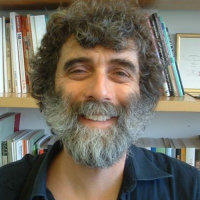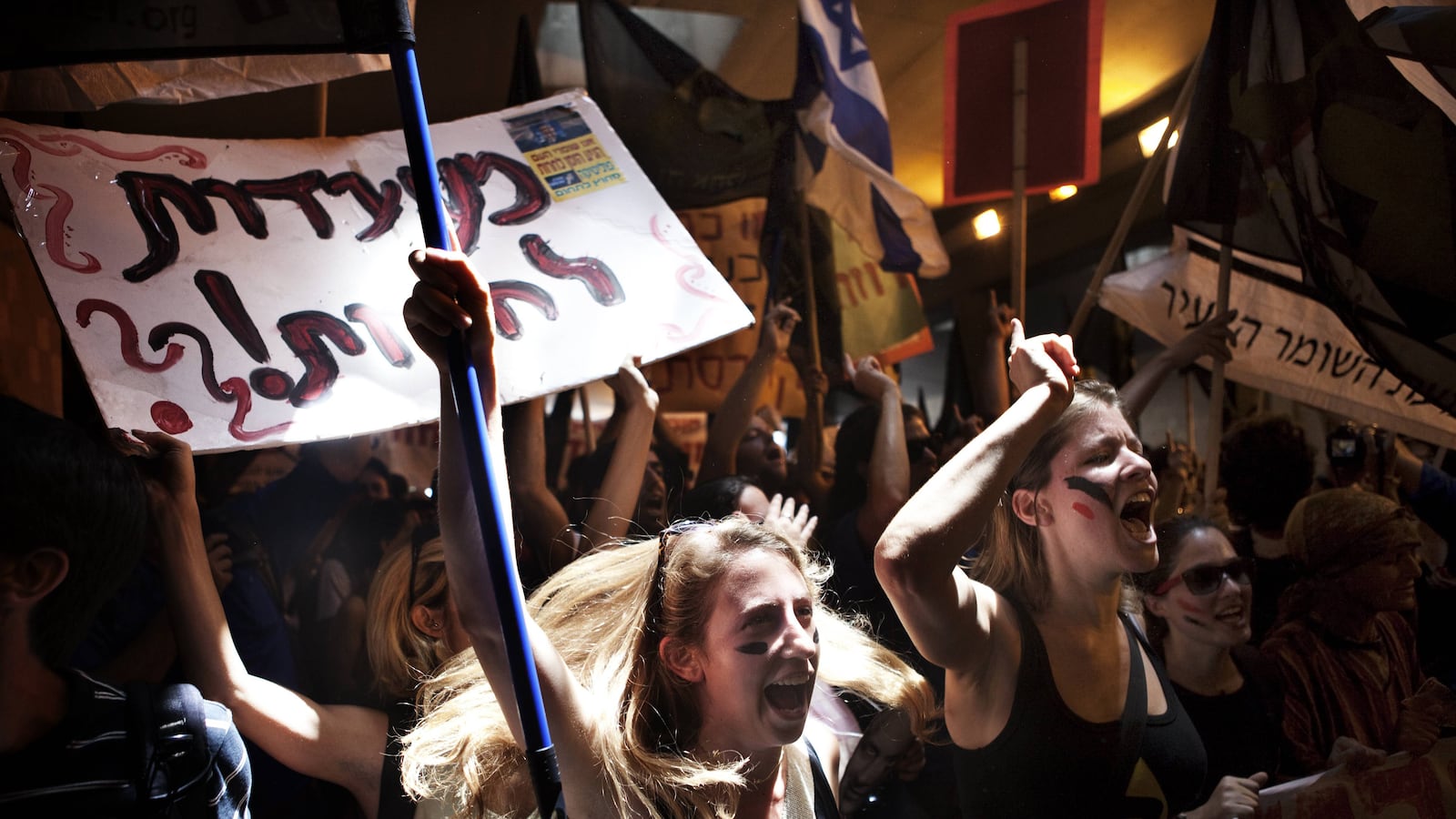Spring in Israel this year brings not only Pesah but a whiff in the air of renewed economic protests, like those that swept the country last summer. Activists believe that after a long winter of empty government promises, they can bring Israelis back to mass demonstrations. On the eve of Passover, Benjamin Netanyahu previewed his strategy for coping with popular anger: Turn it against social outsiders. Exploit prejudice. Learn from the European far right, or from Israeli Foreign Minister Avigdor Lieberman or perhaps —in the spirit of the season—from Pharaoh.
In a pre-Pesah interview to Ha’aretz, the prime minister referred to the poverty among Israel’s Arab and ultra-Orthodox Jewish communities, and then asserted, “The middle class that went out to the streets feels that it’s paying for the two sectors I mentioned… They’re not always wrong.” (Hebrew text)

Let’s parse this. Last July, a few young Israelis, organizing through Facebook, started a tent encampment on the center island of a Tel Aviv boulevard. By August, one out of every 20 Israelis marched on the same night against the government’s economic policies—the equivalent of Occupy Wall Street bringing out 15 million Americans out to demonstrate.
According to the prime minister, those protesters’ unhappiness was aimed at Arabs and ultra-Orthodox Jews—or at least it should be aimed at them for freeloading while the middle class works. So please, protesters, stop chanting, “What’s the answer to privatization? Revolution!” Don’t demand to know why state-owned companies ended up in the hands of a small cadre of oligarchs. Stop noticing that the country that once had the lowest rate of inequality in the West now has one of the highest, nearly matching America’s. Don’t use the expression “piggish capitalism,” with the connotation of treif, for Netanyahu’s dogmatic neoliberalism. Just blame Arabs and the ultra-Orthodox.
Some relevant background: Poverty is in fact endemic to Israel’s Arab and ultra-Orthodox communities. For very different reasons, both communities are socially segregated from mainstream Israel. They’re also ideologically segregated, outside the Zionist consensus. Prejudice against Arabs is widespread and, on the political right, unembarrassed. On the mostly secular left, the one culturally different group that it’s acceptable to dislike is the ultra-Orthodox.
Part of the resentment is, in fact, based on the community’s dependence on state funds, even as two-thirds of ultra-Orthodox men spend their prime years studying Talmud rather than working. Yet that resentment was decidedly not a theme of last summer’s upheaval. The protest movement, with tight message discipline, avoided Israel’s traditional tribal divisions.
For a prime minister to describe Arab poverty as an economic burden on other Israelis is classic blame-the-victim chutzpah. By virtually every measure, the Arab community has suffered decades of underfunding and discrimination. In Arab elementary schools, class size is nearly a fifth larger than in Jewish schools, according to the latest report from Sikkuy, an organization promoting Jewish-Arab equality. The proportion of young Jews enrolled in Israeli universities is nearly three times higher than the proportion of young Arabs. State grants to develop industry have bypassed Arab towns.
Less obviously, ultra-Orthodox poverty is also a creation of state policy, especially the policy of Netanyahu’s Likud party. As I’ve written elsewhere, the trend of ultra-Orthodox continuing to study Talmud into adulthood was the unexpected consequence of a 1949 law that gave state funding to the community’s schools. Young women could get teaching jobs and support their husbands for a few years of adult study.
But the trend escalated wildly after Likud leader Menachem Begin won his first electoral plurality in 1977. To form a government, he needed the ultra-Orthodox politicians as partners. The price included dropping any limit on the number of men who got draft exemptions if they studied Talmud instead of going to work, and providing state funds to help them do so—albeit in poverty. The system satisfies ultra-Orthodox leaders who want to keep their flock safely apart from secular society, but it’s an economic trap for their constituents. Netanyahu’s coalition is based on maintaining that system.
Meanwhile, though, the prime minister is ready to fan resentment of the two impoverished minorities. Netanyahu has been justifiably criticized for his alliance with Lieberman, whose platform is based on portraying Arab citizens as Israel’s misfortune. Now, it seems, the prime minister is willing to double down on the same method.
Or perhaps he’s learning from the Pharaoh of the Pesah story, who distracted his people from their oppression by urging them to “deal shrewdly” with a despised minority. I can only hope that this year the prime minister stayed awake long enough during the Seder to be reminded of what Jewish tradition says about that kind of politics.






